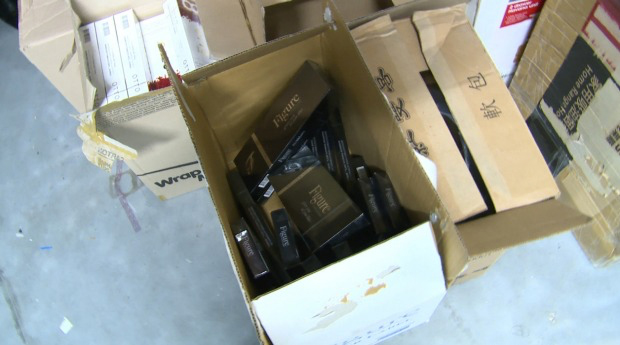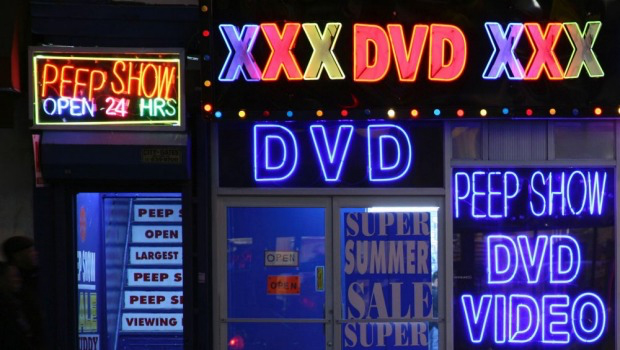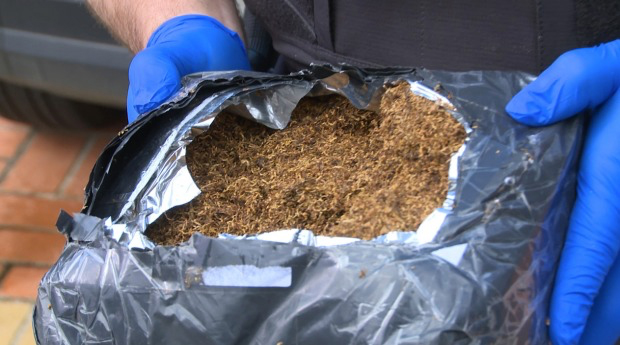Sex shops are believed to be linked to illegal tobacco distribution. Fairfax
Duncan Hughes
August 6, 2017
The powerful Black Economy Taskforce will urge the federal government to “blitz” the illegal tobacco industry, which according to some industry estimates could be costing taxpayers about $4 billion a year in lost revenues.
Tobacco industry chiefs and regulators fear the illegal industry is flourishing because of legal loopholes, turf wars between regulators, poor enforcement and puny punishments.
“I will be recommending an illegal tobacco blitz,” said Michael Andrew, chair of the powerful taskforce appointed by the federal government to identify and recommend strategies for tackling the nation’s black and cash economies.
Asian and Middle Eastern crime gangs are believed to be using an intricate network of distributors to sell smuggled and locally grown “chop chop”, which is raw tobacco, cigarettes and “shisha”, a fluid tobacco smoked through a water pipe.
A recent raid on an alleged illegal tobacco importer by Border Force officers. Supplied
Police and tobacco industry chiefs fear proceeds could be used to fund terrorism, buy political favours and support other unlawful activities.
The cost of a legal packet of cigarettes is about $22-$37 depending on the brand and the number in the pack, because of state and federal taxes intended to persuade existing smokers to give up and to discourage others from taking up the highly addictive habit.
Tobacconists, sex shops
Illegal imported and locally grown cigarettes are being sold through small stores, including independent tobacconists, and sex shops under the brand names “Original Gold” and “Special Gold”.
Asian and Middle Eastern crime gangs behind the products are using stand-over tactics to further distribution, according to police and industry sources.

Illegal cigarettes found in a recent raid in Melbourne. Supplied
“Illegal tobacco consumption in Australia is one of the largest frauds on Commonwealth revenue, with one expert recently suggesting the fraud costs government almost $4 billion each year in lost tobacco excise alone,” said a spokesman for Philip Morris, a global tobacco and cigarette company.
“This serious crime is rarely prosecuted despite significant additional GST and corporate tax evasion. The scale of money laundering involved in these operations to hide the proceeds of crime cannot be understated,” the spokesman said.
“Despite some great efforts by individual law enforcement agencies such as the ABF Tobacco Strike Team, the sheer volumes of illicit tobacco highlight the need for a co-ordinated national approach to combat the black market,” he said.
Industry whistle-blowers have provided regulators with a detailed list of the names and addresses of more than 120 distributors in Melbourne and Sydney, according to sources.
Turf war, derisory pen
They blame a turf war, competing priorities and divided responsibilities between regulators and state and federal agencies for frustrating attempts to close down offenders.
The lax enforcement and derisory penalties for distributors has also helped encourage the industry’s growth, according to industry sources.
Cigarettes that cost $3 in China and South Korea are illegally sold for about $23 in Australia, creating lucrative tax-free incentives for criminal gangs, according to industry sources.
Drug runners importing between $100,000 and $170,000 worth of cocaine, or heroin, with a street value of $2.3 million could face lengthy jail sentences if caught.
A cigarette smuggler importing between $100,000 and $170,000 worth of tobacco with a street value of $10 million in Australia is fined, according to industry sources.
“Resources deployed for enforcement and penalties have no relation to the gravity of the offence and financial consequences,” Mr Andrew said.
Plain packaging
The street value of illegal tobacco means an illegal smuggler will make a profit if only one shipping container from a consignment of 25 if seized by authorities, according to industry sources.
Lucrative profits are also encouraging former tobacco farms in Victoria and NSW to be replanted and harvested to provide substitute home-grown crops.
“Since the introduction of plain packaging, Australia has become one of the most profitable markets for criminals in the importation and sale of illegal tobacco products,” says Jeff Rogut, chief executive of the Australasian Association of Convenience Stores.
“The sheer size and scope of illegal tobacco operations is impossible to control entirely.”
Illicit tobacco trade has been under less scrutiny from police and agencies than terrorism, drugs and weapons trading, despite the potential overlap.
ALP donations
There are also fears that powerful international tobacco companies could be buying political influence.
For example, a director of Sydney tobacco company ATA International, which is suspected of smuggling cigarettes, recently donated $400,000 to the Labor Party, possibly breaching NSW law and the ALP’s ban on taking funds from the tobacco industry.
Subscribe to our free mailing list and always be the first to receive the latest news and updates.


